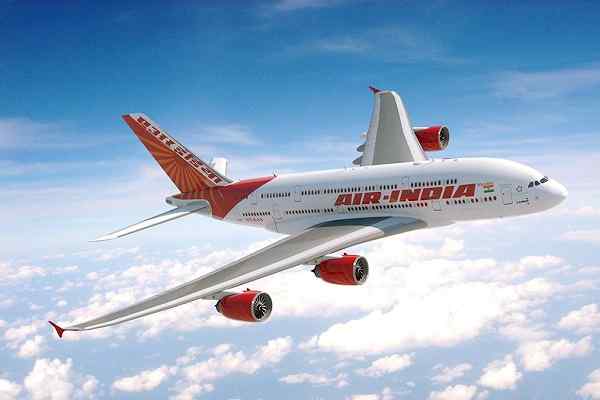 Delhi unveils ambitious Urban Mobility Vision: Luxury Metro Coaches, New Tunnels and Pod Taxi
Delhi unveils ambitious Urban Mobility Vision: Luxury Metro Coaches, New Tunnels and Pod Taxi Qatar approves Saudi Rail Link Agreement, Accelerating Gulf Railway Vision 2030
Qatar approves Saudi Rail Link Agreement, Accelerating Gulf Railway Vision 2030 UP Govt plans to introduce Water Metro services in Ayodhya, Varanasi & Prayagraj
UP Govt plans to introduce Water Metro services in Ayodhya, Varanasi & Prayagraj India’s First Urban Ropeway begins Trial Run in Varanasi, Set to carry 1 Lakh passengers daily
India’s First Urban Ropeway begins Trial Run in Varanasi, Set to carry 1 Lakh passengers daily India and Bhutan to Build First-Ever Rail Link: ₹4,033 Cr Project to Boost Regional Connectivity
India and Bhutan to Build First-Ever Rail Link: ₹4,033 Cr Project to Boost Regional Connectivity Patna to launch Eco-Friendly Water Metro; Trial Run soon between Digha and Kangan Ghats
Patna to launch Eco-Friendly Water Metro; Trial Run soon between Digha and Kangan Ghats Air India Group set to launch Flights Operations from Navi Mumbai International Airport
Air India Group set to launch Flights Operations from Navi Mumbai International Airport Chennai to launch 25-Year Mobility Plan with Unified QR Ticketing and One-App Transit System
Chennai to launch 25-Year Mobility Plan with Unified QR Ticketing and One-App Transit System Kochi Metro bags ₹4.4 crore contract to prepare DPR for Mumbai Water Metro Proejct
Kochi Metro bags ₹4.4 crore contract to prepare DPR for Mumbai Water Metro Proejct Navi Mumbai International Airport set for September launch; IndiGo and Akasa Air to lead Operations
Navi Mumbai International Airport set for September launch; IndiGo and Akasa Air to lead Operations
DMRC and BEL collaborate on Super-SCADA Project to enhance Commuter Services

New Delhi, India (Urban Transport News): Delhi Metro Rail Corporation (DMRC) and Bharat Electronics Limited (BEL) have formalized their collaboration through a Teaming Agreement for the Commercialization of the Super-SCADA project. The joint initiative, part of the 'Make in India' campaign, aims to enhance the Quality of Service provided to commuters through an integrated fault management system.
The Teaming Agreement was officially signed at Metro Bhawan, involving Arun Kumar, Advisor/S&T/Co-ordination, DMRC, and Manoj Jain, Director (R&D), BEL, in the presence of Vikas Kumar, MD DMRC, and Bhanu Prakash Shrivastava, CMD/BEL.
The Super-SCADA project, initiated under the 'Make in India' initiative, focuses on real-time monitoring of various DMRC systems on a unified platform accessible through web and mobile applications. The primary objective is to minimize system downtime, resulting in improved services for commuters.
In November 2021, DMRC, in collaboration with BEL, unveiled the prototype of the indigenous Rolling Stock Driver Training System (RSDTS). Simultaneously, they demonstrated the functionality of the Super-Supervisory Control and Data Acquisition (SCADA) system. The latter, designed as a monitoring system, aims to rationalize maintenance schedules, manpower requirements, and spares management.
Previously, DMRC imported similar products from foreign OEMs at considerable expense. The indigenous RSDTS offers enhanced flexibility, allowing the core software to accommodate different combinations of rolling stock, signaling, and line profiles. This flexibility results in significant cost savings, as the system can be adapted for multiple stocks and various routes.
The new training system, with superior features, aims to be scalable to meet future requirements and could find utility beyond DMRC, benefiting other Metros and Railways. The introduction of driving simulators aligns with the trend of outsourcing train driving activities, contributing to the creation of a skilled workforce with potential global applications.
DMRC is also committed to digitalizing its maintenance operations. The Super-SCADA system plays a pivotal role in this transition, integrating standalone solutions for Automatic Fare Collection, Lifts and Escalators, and Wheel Monitoring Systems into a cohesive digital platform. The initiative also involves developing a decision support system for management at different levels, emphasizing a shift towards predictive maintenance using Artificial Intelligence and Machine Learning.
This collaborative effort between DMRC and BEL signifies a step forward in technological innovation for metro systems, fostering efficiency, and ensuring a seamless experience for commuters.






